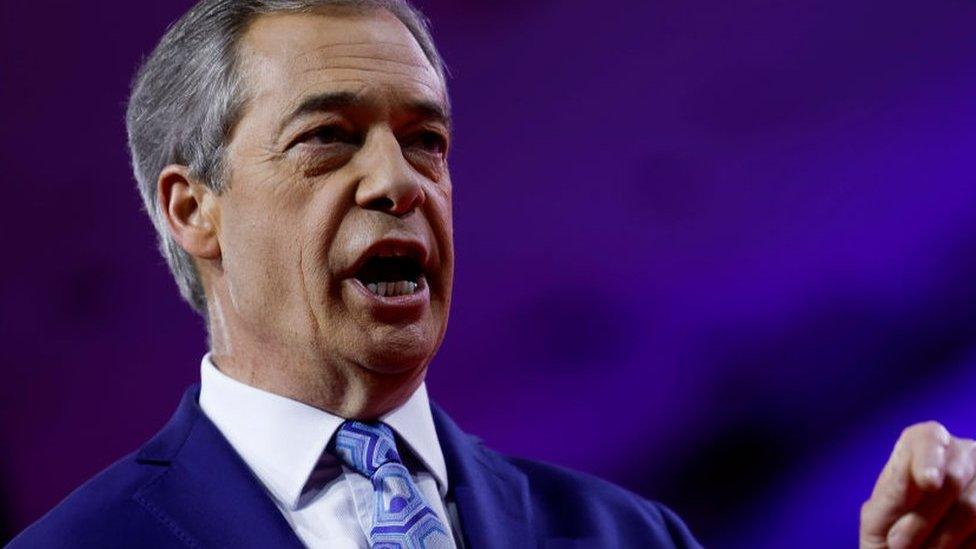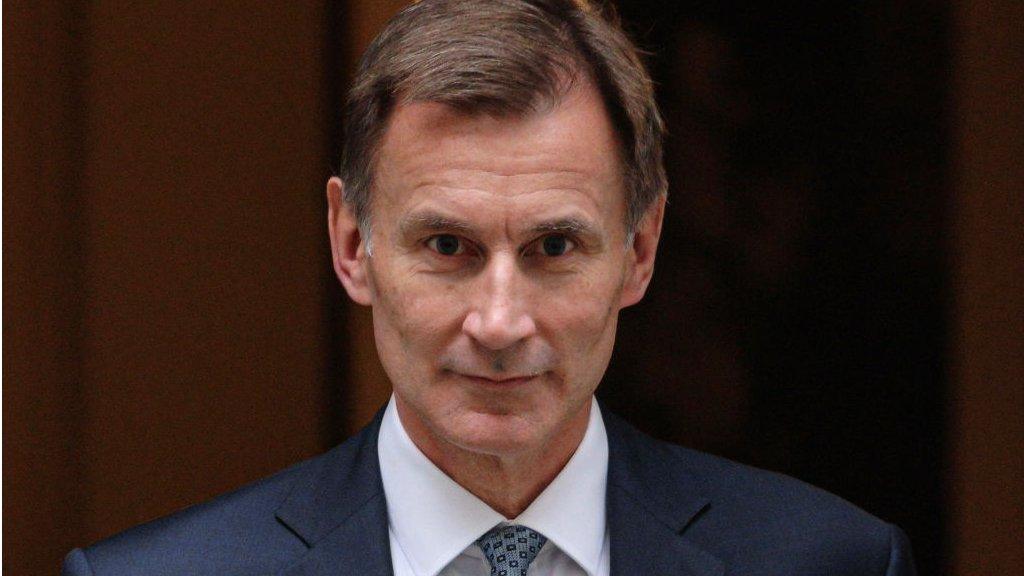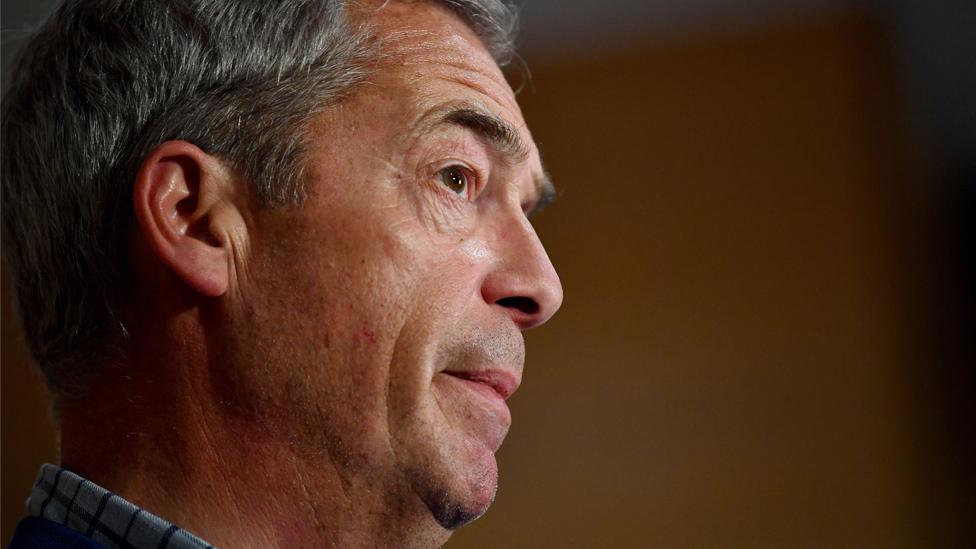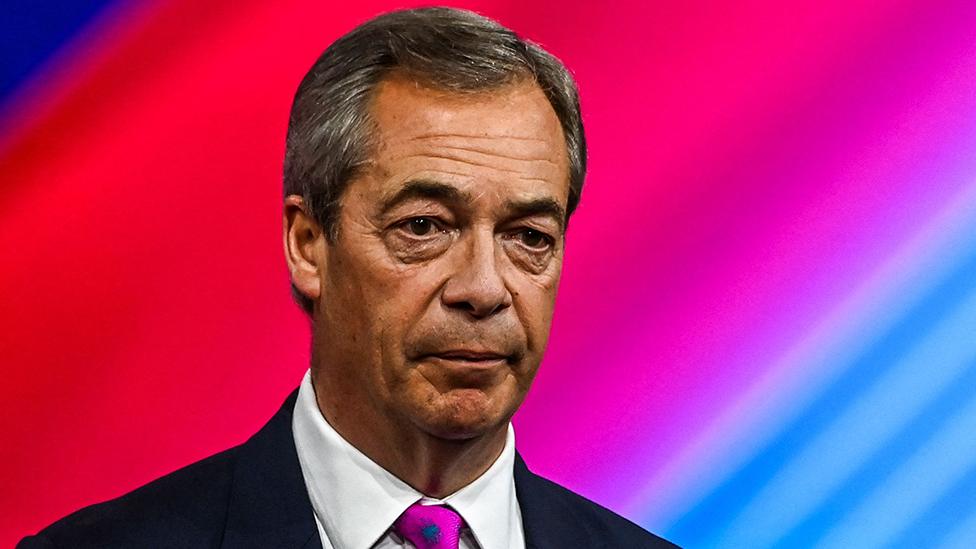'No proof' bank accounts being closed over views, says watchdog
- Published

The City watchdog says it has found no evidence to suggest politicians' bank accounts are being closed primarily because of their views.
The findings by the Financial Conduct Authority (FCA) follow a row over threats to close the Coutts account of former Ukip leader Nigel Farage.
Mr Farage, who claimed his account was being shut over his views, told the BBC the findings were "total nonsense".
The FCA stood by its findings but said it would be making further inquiries.
The government said free speech was "a fundamental human right".
Customer behaviour
"While no bank, building society or payment firm reported to us that they had closed accounts primarily due to someone's political views, further work is needed for us to be sure," said FCA boss Nikhil Rathi.
The watchdog's investigation looked at data from 34 banks and payment companies covering the period from June 2022 to June 2023.
It said it had reviewed a number of cases where political views or other opinions were cited as a cause for closing an account.
But in none of the cases was this the main reason, with customer behaviour, such as the use of "racist language directed towards staff", most often to blame.
However, the watchdog acknowledged its findings had been "gathered from firms at speed" and said it would be doing "further work" to verify the data.
'Farcical'
Responding to the report, Mr Farage called the findings "absolutely farcical".
"To suggest no one gets debanked for their political views is total nonsense," he said, adding that there were "dozens" of examples of where this had happened.
"It's very difficult to believe the FCA can say this and I can only conclude that they're part of the problem, rather than part of the solution," he said.
The FCA had already been preparing to look into the issue of "debanking" prior to the row between Mr Farage and NatWest, which owns the private bank Coutts.
Mr Rathi said the investigation did not consider Mr Farage's case because it "only looked at accounts that have been closed".
However, he told BBC Radio 4's World At One that his organisation was "making sure that case is being specifically investigated in detail by a third party".
Last month, Chancellor Jeremy Hunt called on the regulator to speed up its probe in the wake of the row.
In a letter to the FCA, he asked it to "urgently investigate" whether account closures for political reasons are widespread.
The Treasury has also announced plans to subject UK banks to stricter rules over closing customer accounts.
Commenting on the FCA's report on debanking, the Economic Secretary to the Treasury, Andrew Griffith, said: "Everyone must be able to express their lawful opinions without fear of losing the vital access to a bank account.
"We have already acted to force banks to explain and delay any decision to close an account to protect freedom of expression - meaning customers will have a 90-day notice period and a clear explanation for any account closure. That will be backed up in legislation this year.
"We note the initial report of the FCA. Clearly there is more to be done to validate the submissions by banks and to ensure that the FCA have thoroughly followed up debanked customer perspectives."
When Coutts decided to close Mr Farage's account, he said it did not give him a reason.
Mr Farage subsequently obtained a document looking at his suitability as a Coutts customer, which included minutes from a meeting in November last year reviewing his account.
It confirmed that Mr Farage had fallen below their publicly available commercial criteria to be a customer.
However, the 40-page document also flagged concerns that he was "xenophobic and racist", and raised concerns about the reputational risk of having Mr Farage as a client.
It said that to have Mr Farage as a customer was not consistent with Coutts' "position as an inclusive organisation" given his "publicly stated views".
NatWest has since announced an independent review, with lawyers looking at the decision to close Mr Farage's account and other instances of customers losing Coutts accounts.
Dame Alison Rose, chief executive of NatWest Group, quit after saying she had made a "serious error of judgment" in speaking to a BBC journalist about Mr Farage's Coutts account.
The boss of Coutts, Peter Flavel, also quit due to the row.
In August, it was reported that Coutts had reversed the decision to close Mr Farage's account.
The BBC had initially reported the ex-MEP's account was being closed because he no longer met the wealth threshold for Coutts, citing a source familiar with the matter.
The BBC has since apologised to Mr Farage for the inaccurate story.
- Published4 August 2023

- Published19 July 2023

- Published24 July 2023
